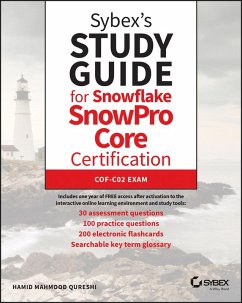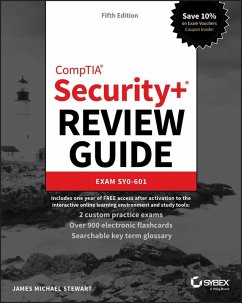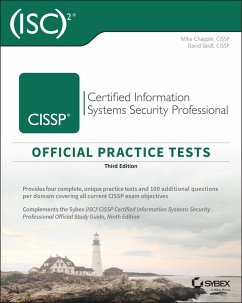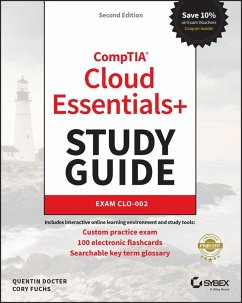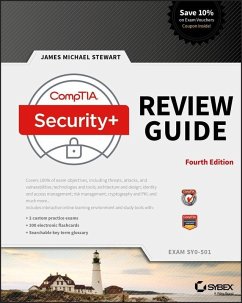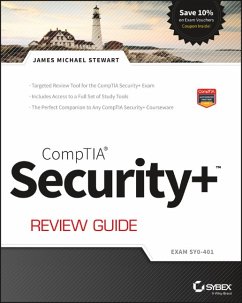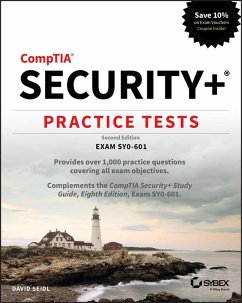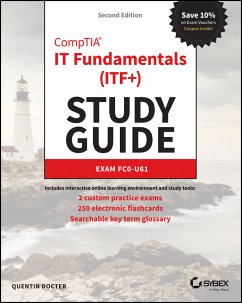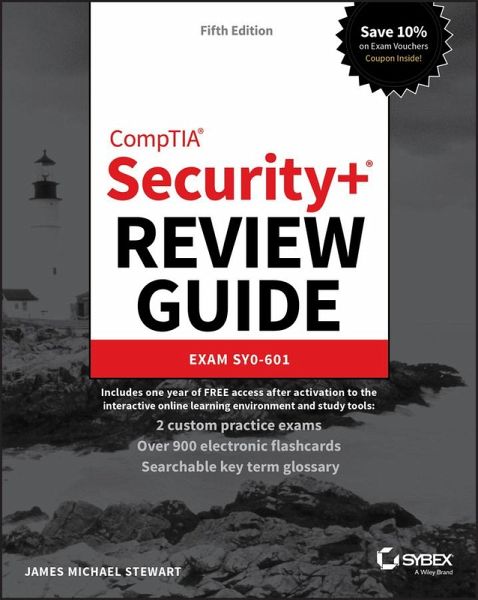
CompTIA Security+ Review Guide (eBook, PDF)
Exam SY0-601
Versandkostenfrei!
Sofort per Download lieferbar
20,99 €
inkl. MwSt.
Weitere Ausgaben:

PAYBACK Punkte
0 °P sammeln!
Learn the ins and outs of the IT security field and efficiently prepare for the CompTIA Security+ Exam SY0-601 with one easy-to-follow resource CompTIA Security+ Review Guide: Exam SY0-601, Fifth Edition helps you to efficiently review for the leading IT security certification--CompTIA Security+ SY0-601. Accomplished author and security expert James Michael Stewart covers each domain in a straightforward and practical way, ensuring that you grasp and understand the objectives as quickly as possible. Whether you're refreshing your knowledge or doing a last-minute review right before taking the ...
Learn the ins and outs of the IT security field and efficiently prepare for the CompTIA Security+ Exam SY0-601 with one easy-to-follow resource CompTIA Security+ Review Guide: Exam SY0-601, Fifth Edition helps you to efficiently review for the leading IT security certification--CompTIA Security+ SY0-601. Accomplished author and security expert James Michael Stewart covers each domain in a straightforward and practical way, ensuring that you grasp and understand the objectives as quickly as possible. Whether you're refreshing your knowledge or doing a last-minute review right before taking the exam, this guide includes access to a companion online test bank that offers hundreds of practice questions, flashcards, and glossary terms. Covering all five domains tested by Exam SY0-601, this guide reviews: * Attacks, Threats, and Vulnerabilities * Architecture and Design * Implementation * Operations and Incident Response * Governance, Risk, and Compliance This newly updated Fifth Edition of CompTIA Security+ Review Guide: Exam SY0-601 is not just perfect for anyone hoping to take the SY0-601 Exam, but it is also an excellent resource for those wondering about entering the IT security field.
Dieser Download kann aus rechtlichen Gründen nur mit Rechnungsadresse in A, B, BG, CY, CZ, D, DK, EW, E, FIN, F, GR, HR, H, IRL, I, LT, L, LR, M, NL, PL, P, R, S, SLO, SK ausgeliefert werden.




